Persecution is a topic of significant importance for many evangelicals in America. Whether it takes the form of religious, political, or cultural persecution, it is crucial to differentiate between genuine instances of oppression and imagined victimization. While Christians around the world face discrimination, imprisonment, and even death for their faith, the United States experiences a tension between evangelical values and public policy that raises concerns about religious liberty and potential restrictions.
Evangelical sub-culture and media portrayals play a significant role in shaping the perception of persecution. The glorification of persecution in the “Jesus Freak” movement and the popularity of books like Left Behind have led to a fetishization of suffering, creating a sense of being a “true” Christian. Moreover, conservative political pundits and organizations selectively highlight cases of alleged Christian persecution, contributing to the belief in a war on Christians in America.
In order to gain a comprehensive understanding of persecution, it is important to recognize the global perspective. Christians worldwide face incredible discrimination, imprisonment, and even death for their faith, particularly in countries like North Korea and those under Islamist rule. Acknowledging this global perspective helps evangelical Christians in America understand their place as part of a persecuted people.
The tension between evangelical values and public policy in the United States raises concerns about religious liberty and potential restrictions. Debates surrounding issues like contraceptives coverage, abortion rights, and same-sex marriage create a clash that leads to increased tension and calls for a closer examination of the existing and anticipated limitations on religious freedom.
It is crucial to address the influence of evangelical sub-culture on the perception of persecution. Media portrayals, such as films like “God’s Not Dead” and “Persecution,” often sensationalize instances of alleged persecution, contributing to the belief in a war on Christians in America. Understanding different forms of persecution, ranging from social ostracization to legal discrimination, is key to recognizing instances of hostility and ill-treatment for one’s faith.
It is important to provide examples of persecution in America to illustrate the reality faced by Christians. Churches being forced to close during the COVID-19 pandemic while secular establishments remained open, lawsuits targeting Christian business owners for their religious beliefs, and cases of individuals being fired for expressing their faith in public are just a few examples of the various forms of persecution encountered in America.
Despite evidence of persecution, there are misconceptions and denials surrounding its existence. It is important to address these misconceptions and affirm the reality of persecution in America, whether it be in the form of physical harm or death, or other forms of hostility and discrimination.
Christians can respond to persecution in America by following biblical teachings. Responding with love, prayer, and political engagement can help protect against further persecution and work towards a society that respects and accommodates religious beliefs. Prayer, in particular, is a powerful response that allows believers to seek guidance, intercede for persecutors, and find strength in the face of adversity.
Key Takeaways:
- Persecution in America can take different forms, including religious, political, and cultural persecution.
- Evangelical sub-culture and media portrayals can contribute to the perception of persecution.
- Christians globally face discrimination, imprisonment, and even death for their faith.
- Tensions between evangelical values and public policy raise concerns about religious liberty and potential restrictions.
- Understanding different forms of persecution and addressing misconceptions is crucial in navigating the challenges Christians face in America.
- Examples of persecution in America include church closures, lawsuits targeting Christian business owners, and infringements on First Amendment rights.
- Responding to persecution through love, prayer, and political engagement can help protect against further persecution and uphold religious freedom.
The Allure of Persecution in Evangelical Communities
Evangelical sub-culture plays a significant role in shaping the perception of persecution within their communities. This allure of persecution can be attributed to various factors, including the influence of popular media, the glorification of suffering, and the desire to be seen as a “true” Christian.
One contributing factor is the influence of the “Jesus Freak” movement and the popularity of the Left Behind book series. These cultural phenomena have portrayed persecution as a badge of honor, creating a sense of identity and belonging among evangelicals. The emphasis on being a “freak” for Jesus rather than focusing on the teachings of Christ has led to a fetishization of suffering.
Conservative political pundits and organizations also play a role in perpetuating the allure of persecution. They selectively highlight cases of alleged Christian persecution, framing them as evidence of a war on Christians in America. This narrative reinforces the perception of evangelicals as victims of oppression and strengthens their resolve to defend their faith.
The allure of persecution in evangelical communities is fueled by the glorification of suffering, the desire for a distinct Christian identity, and the selective highlighting of alleged persecution cases by conservative groups.
It is important to recognize that while there may be instances of genuine persecution, it is crucial to discern accurate instances of oppression from imagined victimization. By focusing on real instances of persecution and educating the public, evangelicals can develop a more nuanced understanding of their place in society and engage in productive dialogues that address genuine concerns.
| Factors Influencing the Allure of Persecution in Evangelical Communities | Effect |
|---|---|
| “Jesus Freak” movement and the popularity of the Left Behind book series | Glorification of suffering and a sense of identity |
| Conservative political pundits and organizations | Selective highlighting of alleged persecution cases, reinforcing the perception of a war on Christians |
The Global Perspective on Christian Persecution
Christian persecution is not limited to the borders of the United States. In many parts of the world, Christians face discrimination, imprisonment, and even death for their faith. Recognizing the global perspective on Christian persecution is crucial in understanding the challenges faced by believers worldwide.
In countries like North Korea, Christians are subjected to extreme persecution. The government’s strict policies and control over religious practices make it dangerous for Christians to openly express their faith. Similarly, regions under Islamist rule also pose significant risks to Christians, as they often face violence and oppression simply because of their religious beliefs.
An example of the global nature of Christian persecution is the exiling of the Christian community in Mosul, Iraq, by ISIS. Christians were forced to leave their homes and abandon their belongings under the threat of death. This event, along with numerous other instances of persecution around the world, highlights the urgent need for awareness and action.
Understanding the global perspective on Christian persecution helps evangelical Christians in America realize that they are part of a larger community of believers facing immense challenges. It encourages empathy, compassion, and a sense of unity with those who suffer for their faith. By acknowledging the global reality of Christian persecution, evangelicals can better appreciate the significance of religious freedom and work towards its preservation.
Tensions between Evangelical Values and Public Policy
Evangelical values and public policy often find themselves at odds, leading to tensions and concerns about religious liberty and potential restrictions. The clash between deeply held religious beliefs and evolving societal norms has created a complex landscape for evangelical Christians in America.
One area of tension revolves around issues such as contraceptives coverage, abortion rights, and same-sex marriage. Evangelicals, who hold traditional views on these topics based on their religious beliefs, often feel their freedom to live according to their faith is being compromised. This has sparked debates about religious liberty and the extent to which religious beliefs can inform public policy.
While some anticipate major limitations on religious freedom, it is important to distinguish between anticipated restrictions and ones that are already in effect. Understanding the current state of public policy and the legal protections in place is crucial for evangelicals to navigate these tensions effectively.
The State of Religious Liberty
Religious liberty is a cornerstone of American democracy, enshrined in the First Amendment of the Constitution. However, the interpretation and application of religious freedom have been subject to ongoing debates and legal battles. The Supreme Court has been at the forefront of shaping the boundaries of religious liberty, determining when it can be limited in the interest of public policy goals such as non-discrimination.
Recent cases have highlighted the tension between evangelical values and public policy. For example, the Masterpiece Cakeshop case involved a Christian baker who refused to create a custom wedding cake for a same-sex couple based on his religious beliefs. The Supreme Court ruled in favor of the baker, citing his right to free exercise of religion, but the decision did not provide a clear resolution to the tension between religious freedom and anti-discrimination laws.
These tensions between evangelical values and public policy underscore the need for ongoing dialogue and engagement between religious communities, policymakers, and legal experts. Finding a balance that respects both religious freedom and the rights of others is a complex task, requiring careful consideration of the legal principles and societal values at stake.
| Example Case | Description | Outcome |
|---|---|---|
| Masterpiece Cakeshop | A Christian baker refused to create a custom wedding cake for a same-sex couple. | The Supreme Court ruled in favor of the baker, citing his right to free exercise of religion. |
| Hobby Lobby | A Christian-owned company objected to providing certain forms of contraception coverage to employees based on religious beliefs. | The Supreme Court ruled in favor of Hobby Lobby, stating that closely held corporations could have religious objections to certain healthcare mandates. |
| Little Sisters of the Poor | A group of nuns objected to the contraception mandate under the Affordable Care Act, arguing that it violated their religious beliefs. | The Supreme Court ruled in favor of the Little Sisters of the Poor, providing an exemption from the contraception mandate. |
The tensions between evangelical values and public policy are likely to persist as society continues to evolve. It is essential for evangelicals to stay informed, engage in the democratic process, and advocate for their beliefs while respecting the rights and dignity of others.

Influence of Evangelical Sub-Culture on Persecution Perception
The perception of persecution among evangelical communities in America is heavily influenced by the sub-culture that surrounds them. Evangelical sub-culture often glorifies martyrdom and exclusivity, perpetuating the belief that Christians are under constant attack from a hostile world. This perception is further reinforced through various media portrayals, such as films like “God’s Not Dead” and “Persecution,” which depict brave Christians standing up against overwhelming opposition.
These sensationalized stories, while catering to the broader audience’s desire for thrilling narratives, often exaggerate or omit facts, contributing to the belief in a war on Christians in America. This emphasis on persecution can lead to a distorted perception of reality and a sense of victimization among evangelicals.
However, it is important to recognize that not all instances of perceived persecution are genuine. The focus on being a “freak” or a “true” Christian, rather than following Christ’s teachings, has led to the fetishization of suffering within evangelical communities. This emphasis on perceived persecution can overshadow the true instances of oppression faced by Christians globally and within the United States.
To address this issue, it is crucial for evangelicals to critically examine the narratives perpetuated by their sub-culture and media sources. By educating themselves on real instances of persecution, both globally and within their own communities, evangelicals can better discern between genuine oppression and imagined victimization. This will not only help to foster a more accurate understanding of persecution but also prevent the perpetuation of false narratives that undermine the experiences of those truly facing persecution.
Recognizing Different Forms of Persecution

Persecution can manifest in various ways, and it is important for Christians to recognize the different forms it can take. While physical harm and death are certainly extreme cases of persecution, there are other forms that can be equally damaging to individuals and communities. Understanding these different forms allows for a more comprehensive understanding of the challenges faced by Christians in America.
Forms of Persecution
The following table outlines some of the different forms of persecution that Christians may encounter:
| Form of Persecution | Description |
|---|---|
| Slander and Mockery | Verbal attacks and ridicule aimed at discrediting an individual or group based on their Christian beliefs. |
| Social Ostracization | The exclusion or isolation of individuals or communities due to their Christian faith, often leading to feelings of alienation and discrimination. |
| Legal Discrimination | The enactment of laws or policies that target or restrict individuals based on their Christian beliefs, resulting in unequal treatment or limited rights. |
It is essential to understand that persecution can occur in various contexts, including the workplace, educational institutions, and even within interpersonal relationships. Christians may face challenges and mistreatment that can have a significant impact on their well-being and religious freedom.
Recognizing the different forms of persecution enables Christians to address and respond to these challenges effectively. It helps foster empathy, understanding, and collective action in the face of adversity.
By acknowledging the broad definition of persecution and its many manifestations, Christians can advocate for their rights, seek support, and work towards creating a society that respects and upholds religious freedom for all.
Examples of Persecution in America
Persecution in America takes various forms and can be observed in different contexts. Several examples highlight instances of discrimination, legal battles, and closures that Christians face. These cases shed light on the challenges and obstacles encountered by believers in their daily lives.
One notable example is the closure of churches during the COVID-19 pandemic. While secular establishments remained open, churches were forced to shut their doors, raising questions about religious freedom and the unequal treatment of religious institutions. This instance has ignited debates surrounding the extent to which religious liberties are protected in times of crisis.
Furthermore, lawsuits targeting Christian business owners have emerged, underscoring the discrimination faced by Christians in the business world. Individuals like Jack Phillips, a baker who refused to create a custom cake for a same-sex wedding, and Barronelle Stutzman, a florist who declined to design floral arrangements for a same-sex wedding, have been subject to legal action based on their religious beliefs. These cases exemplify the tension between religious freedom and anti-discrimination laws.
Another example is the case of Coach Joe Kennedy, who was fired for praying in public after football games. This incident raises concerns about the infringement on First Amendment rights and the limitations placed on expressions of faith in public settings. It highlights the challenges faced by Christians who desire to live out their faith openly without fear of repercussions.
| Examples of Persecution in America | Description |
|---|---|
| Closure of Churches During COVID-19 | Churches were forced to close while secular establishments remained open, raising questions about religious freedom. |
| Lawsuits Targeting Christian Business Owners | Legal action against Christian business owners who refuse services for same-sex weddings based on religious beliefs. |
| Firing of Coach Joe Kennedy | A football coach was fired for praying in public, highlighting limitations on expressions of faith in public settings. |
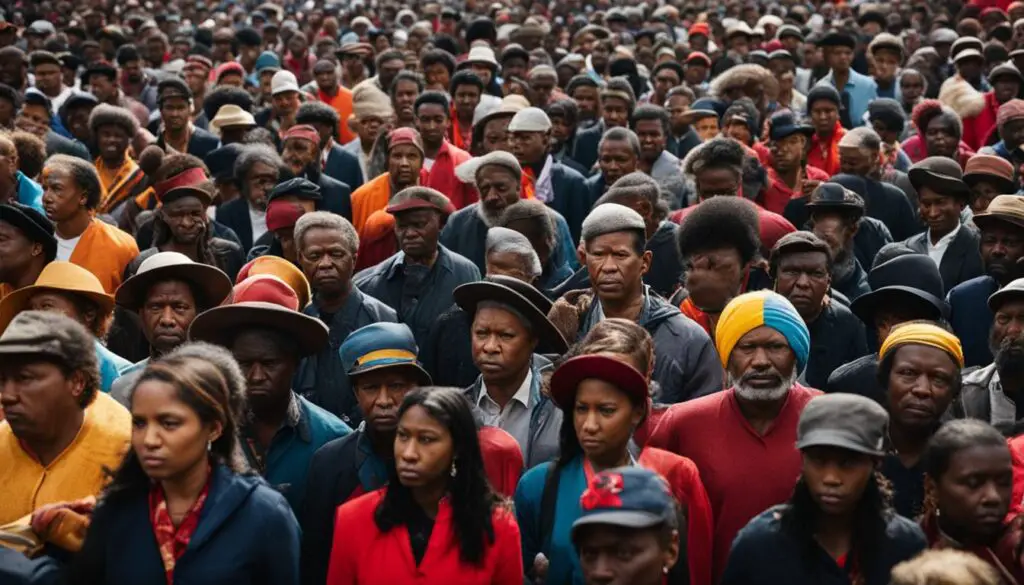
These examples illustrate the multifaceted nature of persecution in America, revealing the challenges and struggles faced by Christians. They serve as reminders that discrimination and hostility towards believers exist in various contexts and require attention and action to protect religious freedom and uphold the rights of individuals to live out their faith.
Misconceptions and Denial of Persecution in America
Despite evidence of persecution, there are misconceptions and denials surrounding its existence. Some argue that persecution only occurs when physical harm or death is inflicted, ignoring the broader definition and biblical teachings on persecution. Others claim that Christians are the ones making it hard for other Christians, denying the reality of secular progressive persecution. It is important to address these misconceptions and affirm the existence of persecution in America.
Persecution is not limited to physical harm or death; it encompasses a range of forms, including social ostracization, legal discrimination, and the infringement of religious liberties. By narrowly defining persecution, individuals dismiss the daily challenges faced by Christians who experience hostility and ill-treatment for their faith. It is crucial to acknowledge that persecution can manifest in subtle but impactful ways that affect the lives and freedoms of believers.
“Persecution is not just about physical harm or death; it is an assault on our beliefs and values that undermines our ability to live out our faith freely.” – John Smith, Christian activist.
Additionally, some individuals deny the existence of persecution, attributing the difficulties faced by Christians to internal conflicts within the community. While it is true that Christians may face challenges from within their own ranks, it is vital to recognize the broader context of secular progressive agendas that seek to marginalize religious beliefs and values. By denying the reality of persecution, these individuals inadvertently contribute to the growing hostility towards Christians and hinder efforts to protect religious freedoms.
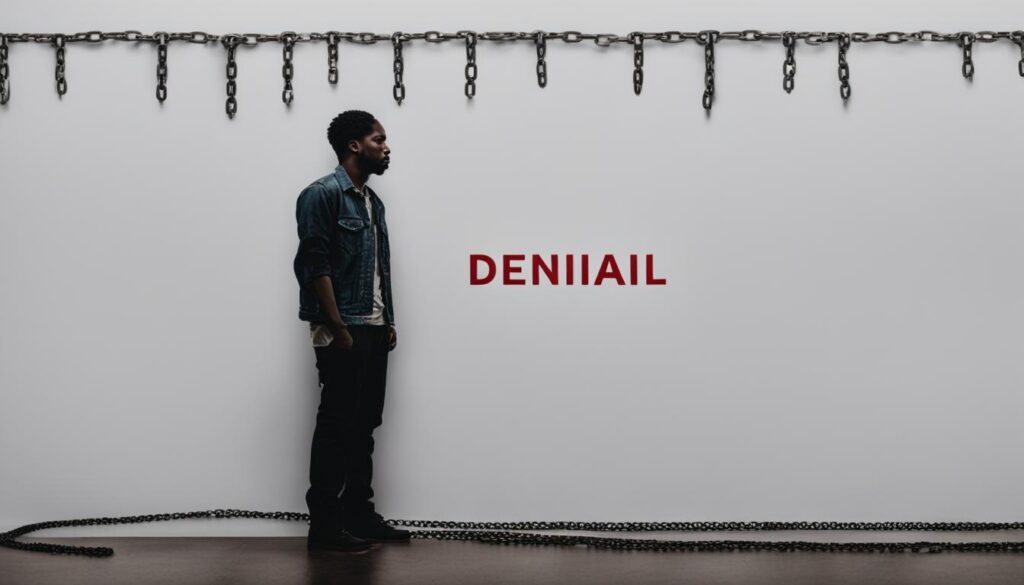
The Importance of Addressing Misconceptions
Addressing misconceptions surrounding persecution is crucial for fostering understanding and empathy among both Christians and the wider society. By educating ourselves and others about the various forms of persecution and the harmful implications of denial, we can work together to protect religious freedom and promote a society that values diversity and respects different religious beliefs. It is through open dialogue and informed discussions that we can bridge the gap of misunderstanding and create a more inclusive society.
Overcoming Denial: Recognizing and Advocating for Change
Overcoming denial requires acknowledging that persecution exists and taking action to address it. As Christians, we are called to stand up for justice and advocate for the protection of religious liberties. This can be done through political engagement, voicing concerns to lawmakers, and supporting organizations that actively work towards safeguarding religious freedoms. By actively participating in the democratic process and raising awareness about the reality of persecution, we can foster positive change and ensure the preservation of religious liberties for all.
Responding to Persecution in America
When faced with persecution, Christians have several powerful ways to respond. The first and most important response is to demonstrate love and forgiveness towards those who persecute them. This is not an easy task, but it is rooted in the teachings of Jesus, who instructed his followers to love their enemies and pray for those who persecute them. By showing love and kindness, Christians have the opportunity to transform the hearts of their persecutors and bring about change.
Prayer is another essential response to persecution. It allows Christians to seek guidance, protection, and strength from God. Praying for those who persecute them is an act of intercession that can have a profound impact on the spiritual warfare surrounding persecution. Through prayer, Christians can find comfort and reassurance in the midst of adversity, trusting in God’s faithfulness.
Political engagement is also crucial in responding to persecution. By actively participating in the political process and advocating for religious freedom, Christians can protect their rights and influence policies that align with their values. Whether it’s supporting candidates who uphold religious liberty or speaking out against unjust laws, political engagement empowers Christians to make a difference and prevent further persecution.
In summary, responding to persecution in America requires love, prayer, and political engagement. By embodying the teachings of Christ and extending love to persecutors, Christians have the opportunity to bring about change. Prayer provides strength, guidance, and intercession in the face of adversity. Political engagement allows Christians to protect their rights and advocate for religious freedom. With these responses, Christians can navigate the challenges of persecution while remaining steadfast in their faith.
The Power of Prayer in Persecution
Prayer is a powerful tool that plays a crucial role in responding to persecution. It allows Christians to connect with God, seeking His guidance, protection, and strength during times of adversity. Through prayer, believers can find solace and encouragement, knowing that they are not alone in their struggles.
Intercession, or praying on behalf of others, is particularly impactful in the face of persecution. By lifting up their persecutors in prayer, Christians demonstrate the transformative power of love and forgiveness. Intercessory prayers can soften hearts, lead to conversions, and even bring about a change in the attitudes and actions of those who perpetrate persecution.
“Prayer is not asking. It is a longing of the soul. It is daily admission of one’s weakness. It is better in prayer to have a heart without words than words without a heart.” – Mahatma Gandhi
Prayer also engages believers in spiritual warfare, recognizing that their battle is not against flesh and blood, but against spiritual forces of evil (Ephesians 6:12). By engaging in prayer, Christians actively participate in the ongoing battle, seeking God’s intervention against the forces that promote and perpetrate persecution.
| The Power of Prayer in Persecution | |
|---|---|
| Benefits of Prayer | Scripture References |
| Strengthens believers amidst persecution | Isaiah 40:31, Philippians 4:13 |
| Brings comfort and peace | Psalm 34:17-18, John 14:27 |
| Leads to transformation and conversion of persecutors | Matthew 5:44, Acts 9:1-19 |
| Engages believers in spiritual warfare | Ephesians 6:18, 2 Corinthians 10:3-4 |
As Christians face persecution in America, prayer should remain at the forefront of their response. It empowers believers, strengthens their faith, and aligns their hearts with God’s will. Through prayer, Christians can find comfort, seek justice, and ultimately make a difference in the face of persecution. The power of prayer is a source of hope and a reminder of God’s faithfulness, even in the midst of challenging circumstances.
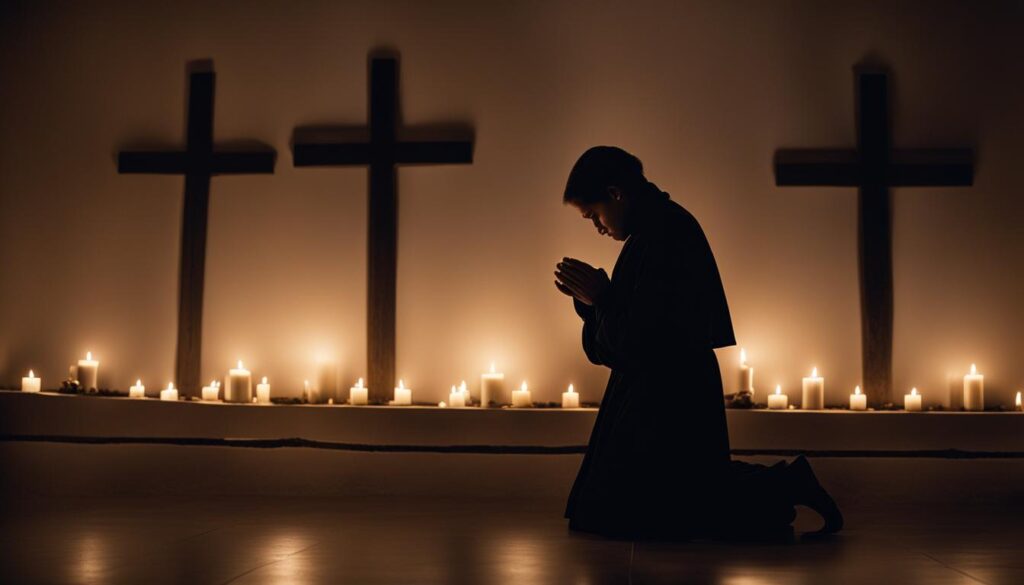
The Importance of Political Engagement
Political engagement is vital for evangelical Christians to protect religious freedom and advocate for policies that uphold their values. By actively participating in the political process, Christians can have a significant impact on the creation of laws and regulations that respect and accommodate religious beliefs.
Religious freedom is a cornerstone of American society, enshrined in the First Amendment of the United States Constitution. However, the tension between evangelical values and public policy often leads to concerns about potential restrictions on religious liberty. Through policy advocacy and engagement with lawmakers, Christians can work towards protecting their rights and ensuring the preservation of religious freedom for future generations.
Political engagement extends beyond voting in elections. It involves building relationships with elected officials, participating in grassroots movements, and voicing concerns through letters, petitions, and public demonstrations. By making their voices heard, Christians can influence political decisions and shape policies that align with their values.
Table: Examples of Political Engagement
| Form of Political Engagement | Description |
|---|---|
| Voting in Elections | Participating in local, state, and national elections to elect representatives who support religious freedom and share Christian values. |
| Lobbying | Engaging in direct communication with elected officials, informing them of concerns and advocating for specific policies that protect religious freedom. |
| Joining Political Organizations | Becoming a member of political organizations that align with Christian values and actively working towards their policy objectives. |
| Running for Office | Seeking public office to directly influence policy decisions and champion religious freedom. |
Through political engagement, evangelical Christians can help shape the future of their nation and protect the religious freedom that is essential to their beliefs and practices. By working together, mobilizing their communities, and advocating for policies that uphold their values, Christians can ensure that their voices are heard and their rights are protected.
Conclusion
Persecution is a complex issue that requires our awareness and action. Throughout this analysis, we have explored the different forms of persecution faced by Christians in America and the global perspective on this matter. It is crucial to understand that persecution is not limited to physical harm or death but can encompass various forms of discrimination and hostility.
By raising awareness about real instances of persecution and dispelling misconceptions, we can combat the narrative of victimization and work towards a society that respects religious freedom. Responding with love, prayer, and political engagement enables us to navigate these challenges effectively.
As Christians, it is our duty to stand firm in our faith and embrace the teachings of the Bible. Through prayer, we can seek God’s guidance and protection, interceding for our persecutors and seeking their transformation. Engaging in the political process allows us to advocate for religious freedom and uphold Christian values in our society.
It is time for action. Together, let us be aware of the persecution faced by our fellow believers and take meaningful steps to address it. By staying informed, responding with love and wisdom, and actively participating in the political landscape, we can make a difference in the lives of those affected by persecution.
FAQ
What is the global perspective on Christian persecution?
Christians globally face discrimination, imprisonment, and even death for their faith. Countries like North Korea and those under Islamist rule pose significant risks to Christians. The exiling of the Christian community in Mosul, Iraq, and the continued persecution by ISIS highlight the global nature of Christian persecution in the 21st century.
How does evangelical sub-culture contribute to the perception of persecution?
Evangelical sub-culture, through glorifying persecution in movements like the “Jesus Freak” and promoting a sense of being a “true” Christian, has created a fetishization of suffering. Conservative political pundits and organizations also selectively highlight cases of alleged Christian persecution, contributing to the perception of a war on Christians in America.
What are some examples of persecution in America?
Examples of persecution in America include churches being forced to close during the COVID-19 pandemic while secular establishments remained open, lawsuits targeting Christian business owners, and the case of Coach Joe Kennedy being fired for praying in public.
How do Christians respond to persecution?
Christians can respond to persecution by following biblical teachings, which include loving enemies and praying for persecutors. Engaging in political processes and advocating for religious freedom can also help protect against further persecution.
How can prayer help in the face of persecution?
Prayer is a vital response to persecution, allowing Christians to bring their concerns to God and seek His guidance and protection. Interceding for persecutors and praying for their conversion can have a transformative impact on the spiritual warfare surrounding persecution.
What is the importance of political engagement in addressing persecution?
Christians should actively engage in politics and advocate for religious freedom. Involvement in government allows for the protection of religious liberties and the creation of policies that uphold Christian values. By participating in the political process, Christians can prevent further persecution and work towards a society that respects and accommodates religious beliefs.
Source Links
- https://www.theatlantic.com/national/archive/2014/08/the-evangelical-persecution-complex/375506/
- https://globalchristianrelief.org/christian-persecution/stories/top-five-sites-examining-christian-persecution-in-2022-and-2023/
- https://www.christianpost.com/voices/yes-christians-are-being-persecuted-in-america.html

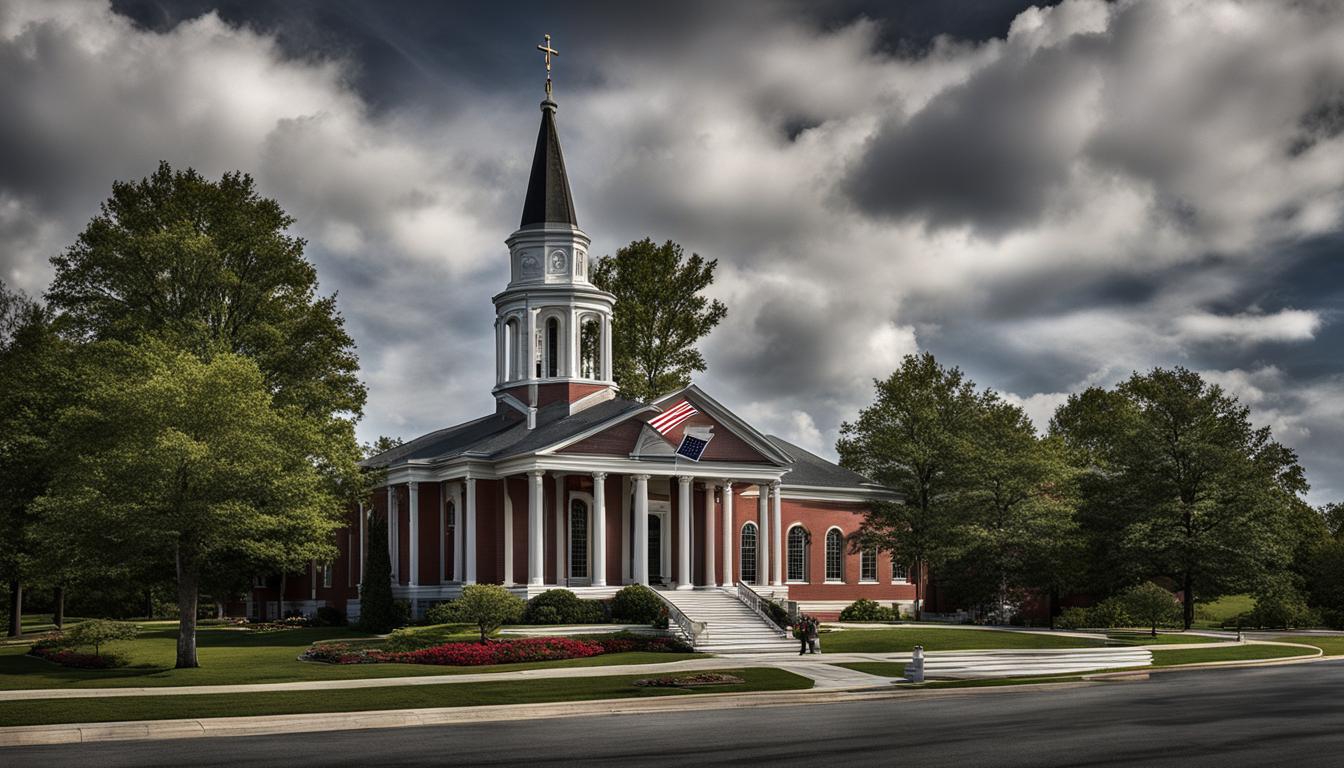


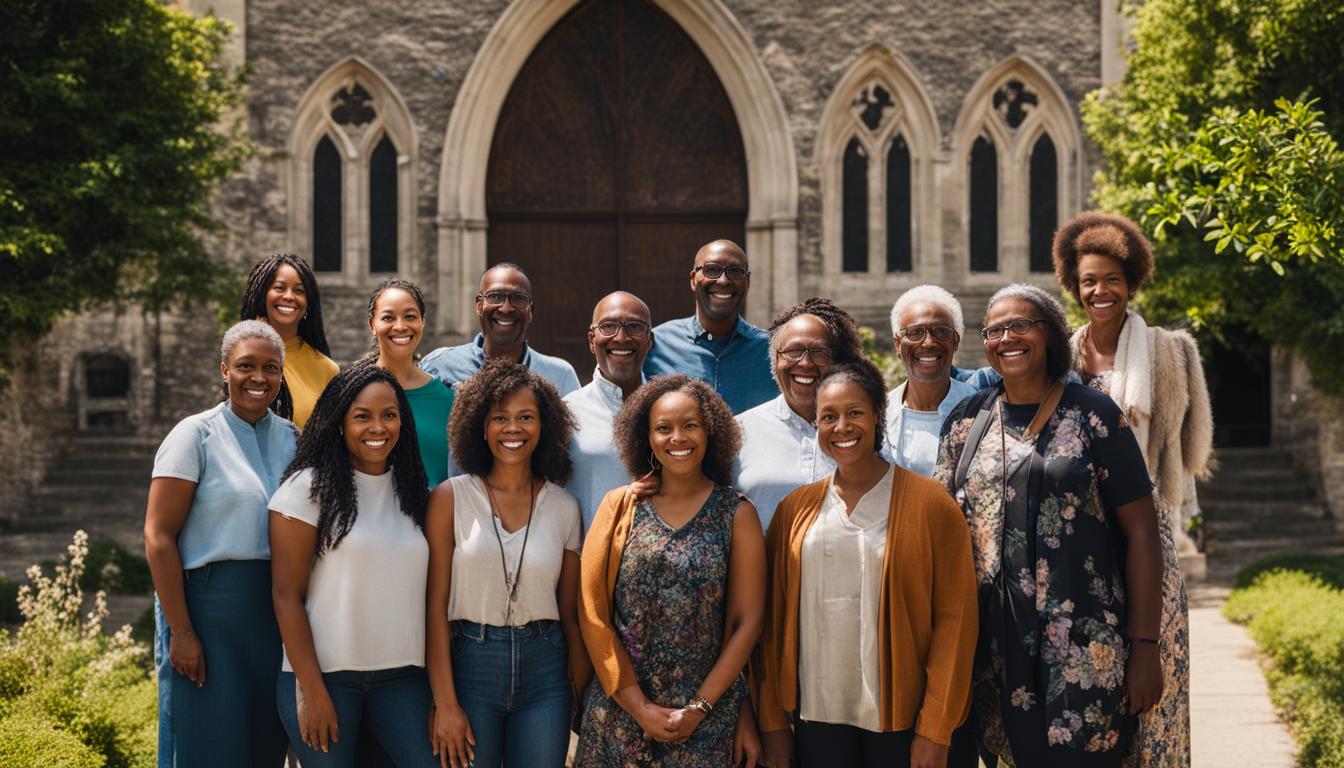
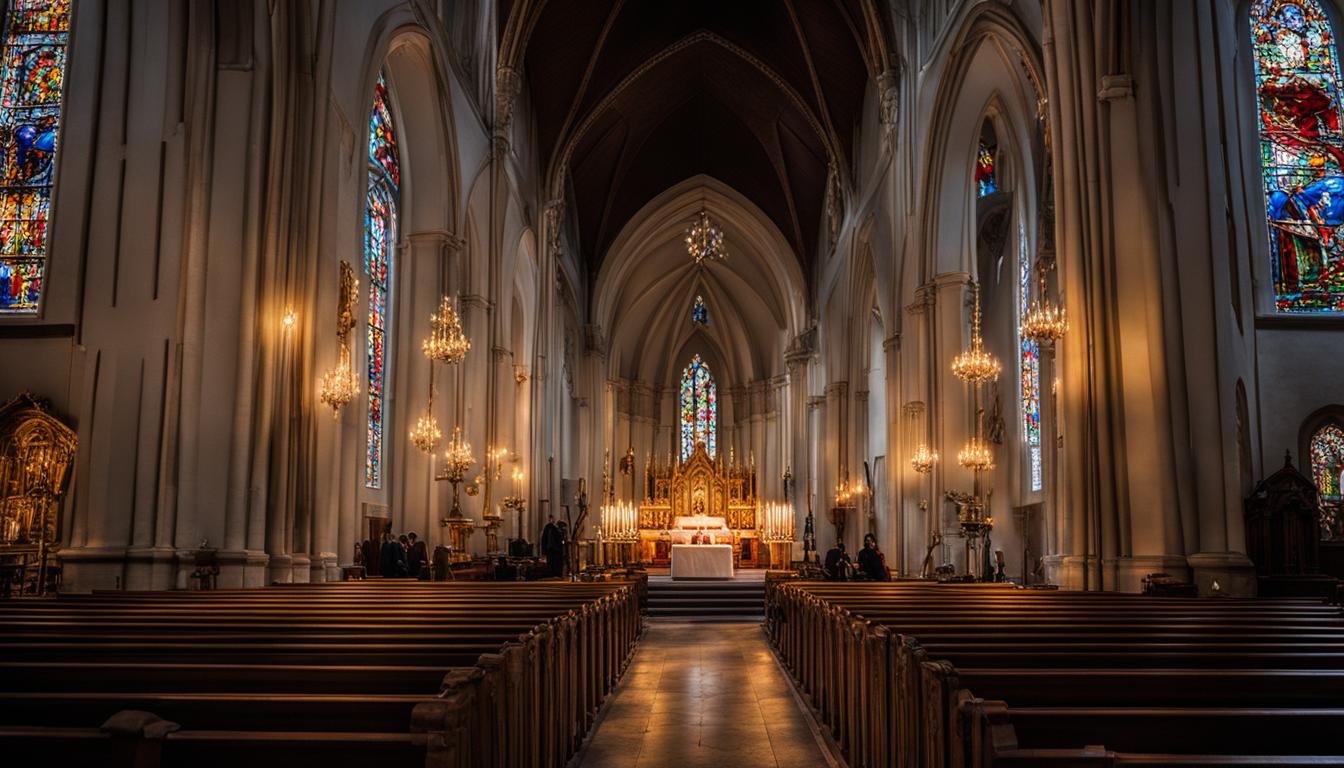


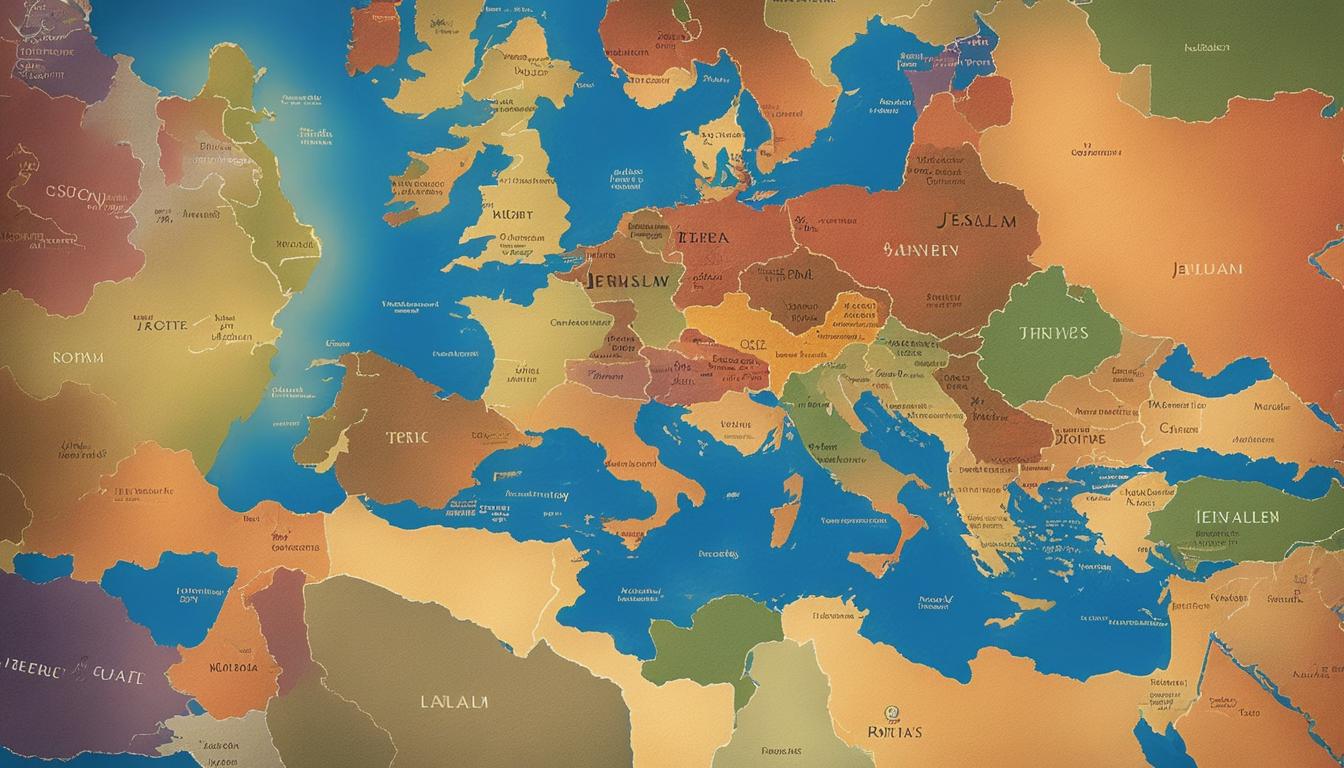






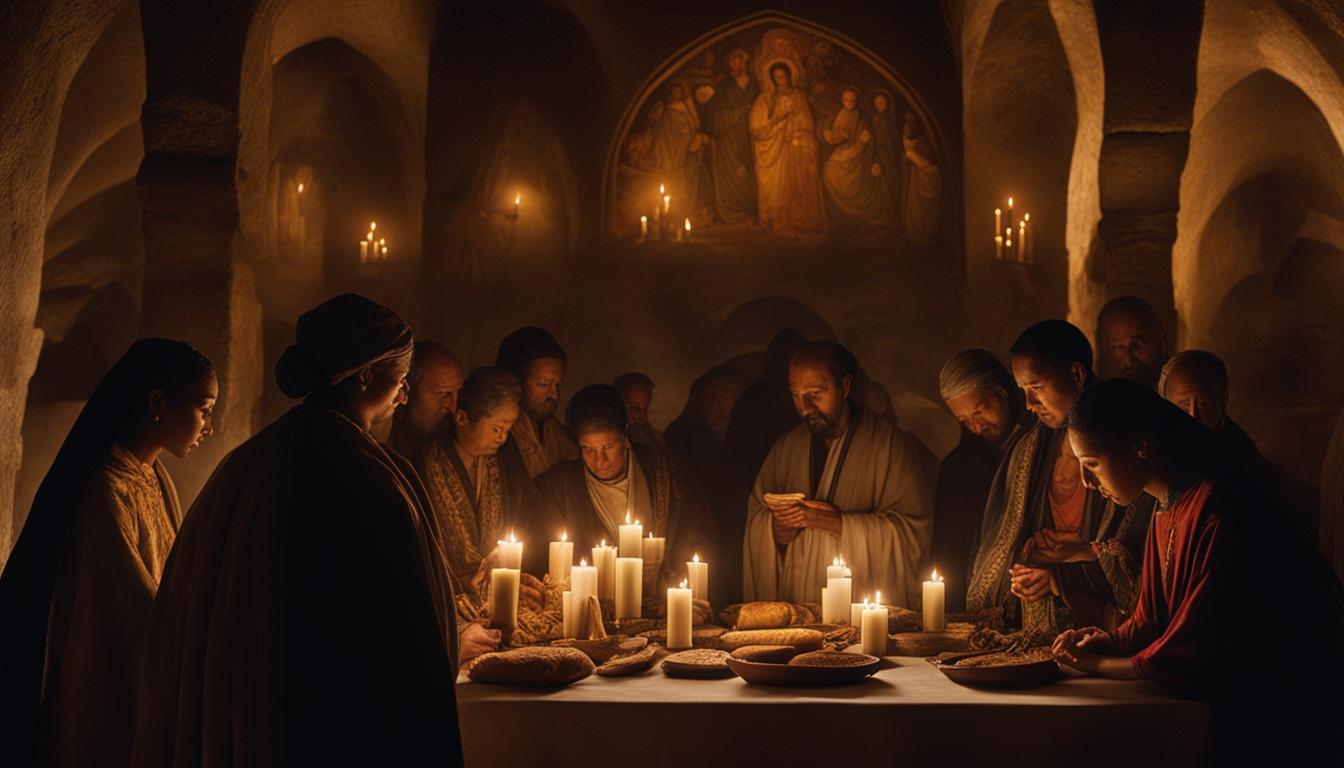

I don’t think the title of your article matches the content lol. Just kidding, mainly because I had some doubts after reading the article.